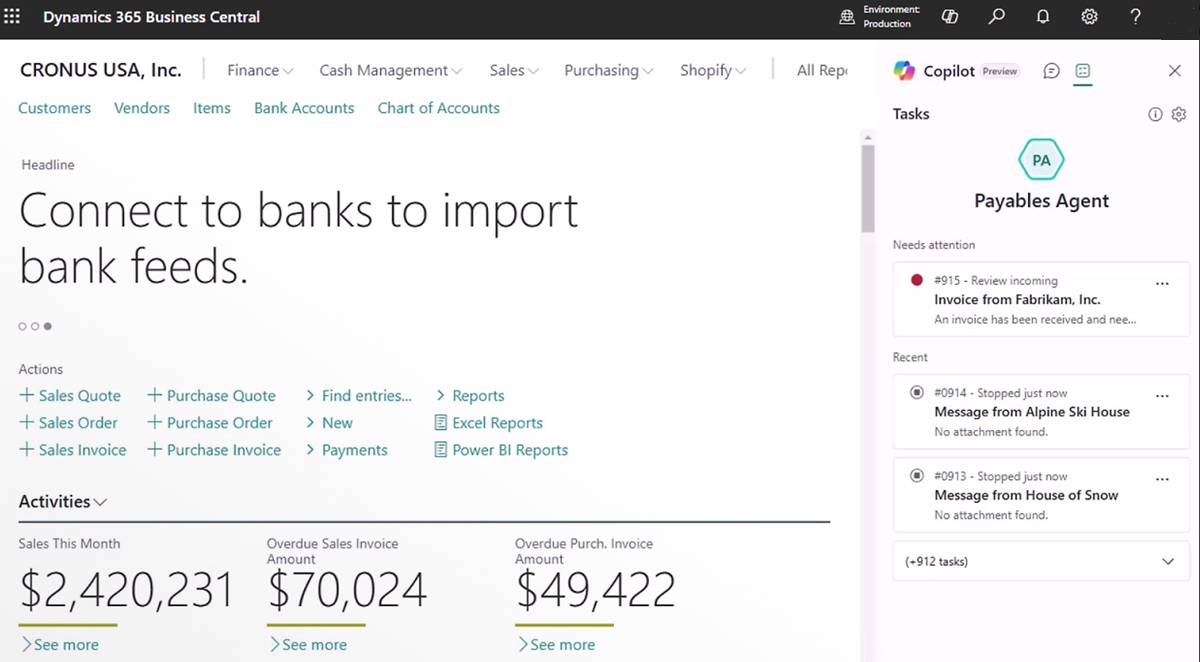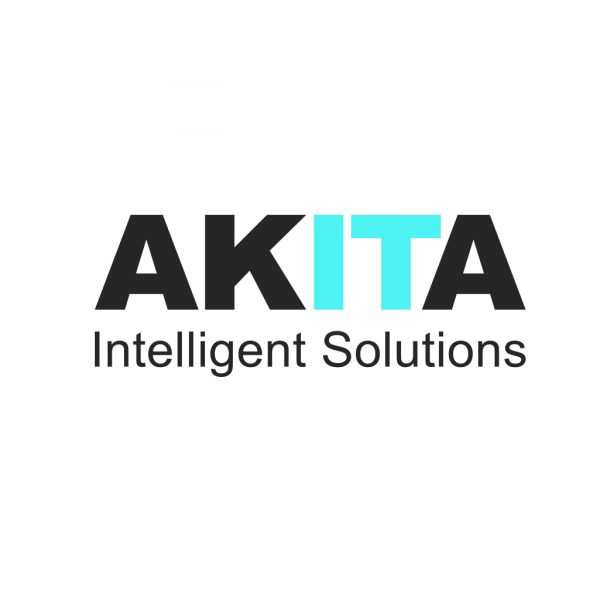Finance teams are under increasing pressure to drive efficiency, accuracy, and insight across their organisations. The right software is key.
Manual reporting, siloed systems, and fragmented data are no longer fit for purpose. Businesses need integrated tools that streamline financial management while providing real-time visibility across all operations. That’s where ERP finance systems come into play.
This article explores the value of an ERP finance solution, answers key questions about ERP in financial management, and demonstrates how businesses can transform their finance operations with the right system.
What Is An ERP System In Finance Terms?
An ERP system in finance is software designed to integrate and manage core financial processes within an organisation. ERP stands for Enterprise Resource Planning, and in the financial context, it covers areas such as general ledger and chart of accounts management, accounts payable and receivable, budgeting and forecasting, cash flow and liquidity management, asset tracking, and consolidation and compliance reporting.
The benefit of an ERP finance system lies in its centralised approach. Rather than relying on spreadsheets or disconnected tools, ERP for finance brings data together into one unified platform. This creates a single version of truth for financial reporting, reduces errors, and enables faster decision-making.
For finance leaders, ERP is not just about automation. It’s about gaining greater visibility into the business, ensuring regulatory compliance, and driving long-term financial strategy.
How Can ERP Be Used In Finance?
ERP finance systems are used to streamline day-to-day financial operations while providing strategic insights. One of the key advantages is the automation of routine financial tasks. Processes such as invoice management, bank reconciliation, expense approvals, and month-end close are handled more efficiently, reducing manual workload and minimising errors.
ERP also enhances reporting and compliance by centralising financial data. Reports are more accurate, audits are easier to conduct, and adherence to global standards such as IFRS and GAAP becomes simpler. Another crucial use lies in delivering real-time financial visibility. Instead of waiting for static month-end reports, finance teams and senior leaders can access dashboards that reveal up-to-the-minute performance, liquidity, and profitability.
Perhaps most importantly, ERP connects finance with wider business operations. By integrating financial data with sales, supply chain, projects, and HR, organisations gain a holistic view that enables smarter forecasting and ensures finance plays a strategic role in guiding business decisions.
Can you Make Payments Through ERP Systems?
Yes. Modern ERP finance systems, including Microsoft Dynamics 365 Business Central, support integrated payment processing. This means organisations can manage the full payment lifecycle directly within their ERP, covering issuing supplier payments, managing customer collections, reconciling bank transactions, and automating recurring payments.
With Business Central, businesses can also connect directly to banking APIs and payment providers, making the process more efficient. By handling payments inside the ERP, transactions are automatically recorded in the system, improving cash flow visibility and ensuring compliance with financial regulations.
Why Business Central Is The Ideal ERP Finance System
There are many ERP finance systems on the market, but Microsoft Business Central consistently performs well with SMEs and mid-sized organisations looking for scalability, ease of use, and deep integration with their wider systems. There’s a number of reasons why it is the ideal ERP for finance:
1. Comprehensive financial management
Business Central delivers all the core financial functionality required of ERP finance software. It covers everything from general ledger to budgeting, cost accounting, and asset management - with all data available in real-time. Businesses gain end-to-end financial control in a single system, eliminating the need for multiple tools.
2. Real-time reporting and insights
Business Central integrates with Microsoft Power BI, allowing finance teams to create interactive dashboards and data visualisations. Decision-makers can drill into key financial KPIs, track cash flow, and monitor profitability in real time. This elevates finance from a reactive function to a proactive driver of strategy.
3. Built-in compliance and security
For organisations operating across regions, Business Central supports multiple currencies, tax regimes, and compliance requirements. This makes it easier to consolidate reporting across entities while adhering to local standards. As part of the Microsoft ecosystem, security and data protection are built in at enterprise-grade levels.
4. Seamless integration with Microsoft 365
Unlike many ERP finance systems, Business Central integrates natively with tools such as Outlook, Excel, and Teams. Finance professionals can generate invoices from emails, update budgets in Excel with live data links, and collaborate across Teams - all within the Microsoft environment they already use daily.
Organisations also benefit from Microsoft's AI tool, Copilot, which introduces a range of further automation benefits that reduce manual tasks
5. Scalable cloud-based solution
Business Central is cloud-first, ensuring accessibility from anywhere. This is especially valuable for hybrid or distributed finance teams. Its subscription-based model allows organisations to scale licences as needed, avoiding large upfront costs while ensuring the system can grow with the business.
6. Payment and bank integration
Business Central goes beyond standard ERP finance capabilities by offering automated bank reconciliation, electronic payments, and integration with payment providers. This reduces manual effort, ensures payment accuracy, and speeds up financial processing.

7. Flexibility across industries
Whether in professional services, manufacturing, construction, or retail, Business Central adapts to industry-specific requirements. Finance leaders gain a system that reflects the nuances of their sector while maintaining strong financial control.
ERP Finance: A Strategic Advantage
Finance teams are no longer viewed solely as back-office number-crunchers; they are increasingly expected to act as strategic advisors. ERP finance systems make this possible by linking financial data with operational performance.
For instance, sales forecasts can be assessed directly against budget projections, giving finance leaders immediate insight into potential gaps or opportunities. Supply chain efficiency can be measured in financial terms, allowing teams to understand the direct cost implications of operational decisions. Likewise, project expenses and profitability can be tracked in real time, ensuring accurate reporting and proactive management.
By drawing these connections across departments, Business Central creates a holistic view of organisational health. This enables finance leaders to move beyond traditional reporting and provide recommendations that support growth strategies, improve efficiency, and mitigate risks.
In effect, ERP solutions transform the finance function from a reactive service into a central driver of business performance.
Moving ERP Finance System: Why now?
Organisations that delay modernising their ERP finance systems face a growing competitive disadvantage. Legacy systems are costly to maintain, prone to errors, and unable to provide the agility needed in today’s business environment.
Implementing Business Central as your ERP for finance delivers:
-
Faster month-end close cycles
-
Improved accuracy and compliance
-
Stronger financial forecasting and planning
-
Reduced manual workload
-
A more engaged, strategic finance team
With cloud ERP finance technology advancing rapidly, now is the time for businesses to make the shift and ensure their finance operations are fit for the future.
Final thoughts
An ERP system in finance is effective way to deliver the efficiency, compliance, and reporting needed for strategic business growth. Finance teams need systems that go beyond simple accounting to deliver integrated insights across the organisation.
Business Central is the ideal ERP finance system for SMEs and mid-sized enterprises. It combines comprehensive financial functionality with deep integration, real-time insight, and scalability. For businesses looking to elevate their finance function and drive long-term success, Business Central stands out as the clear choice.
To discuss more about finance ERP solution for your organisation, please get in touch:
Speak To The Team





